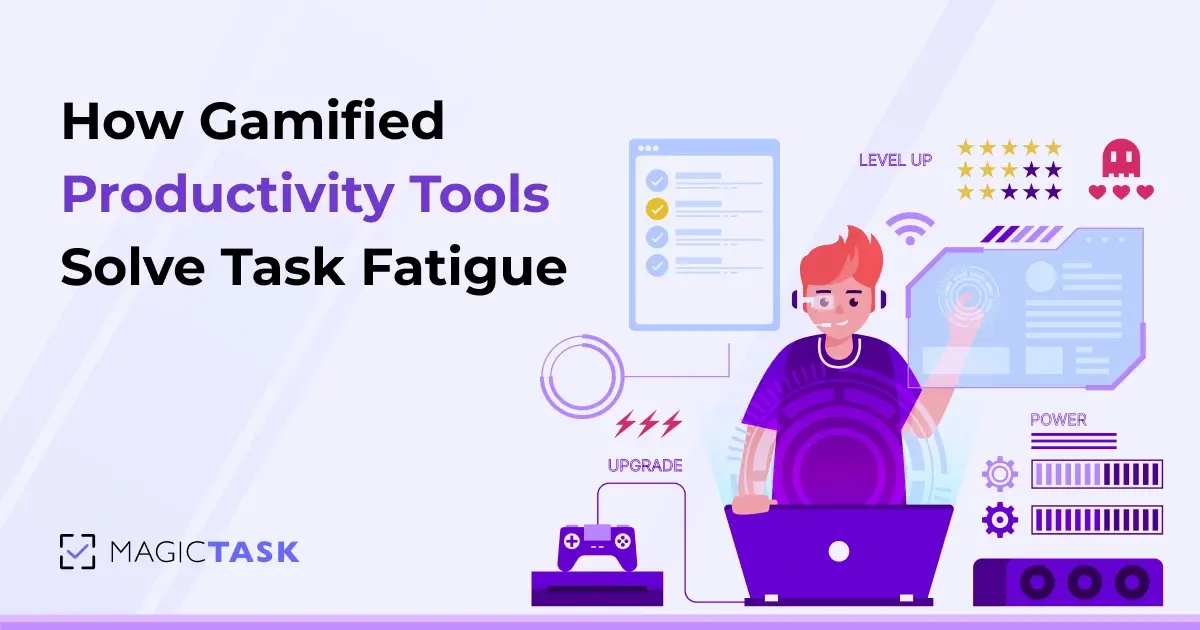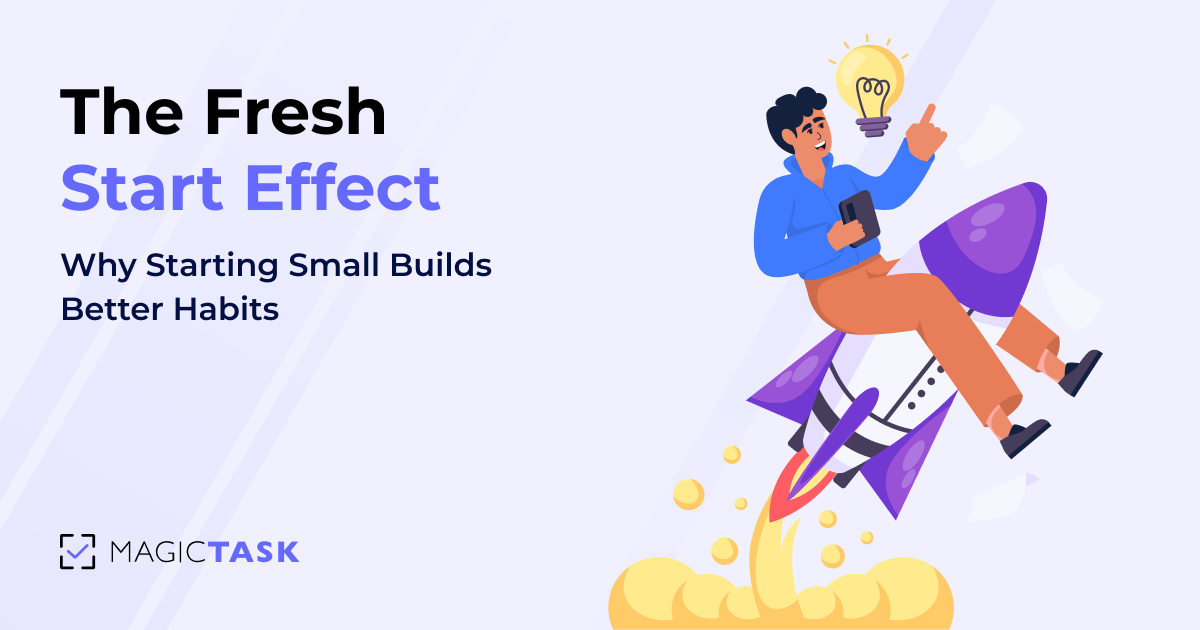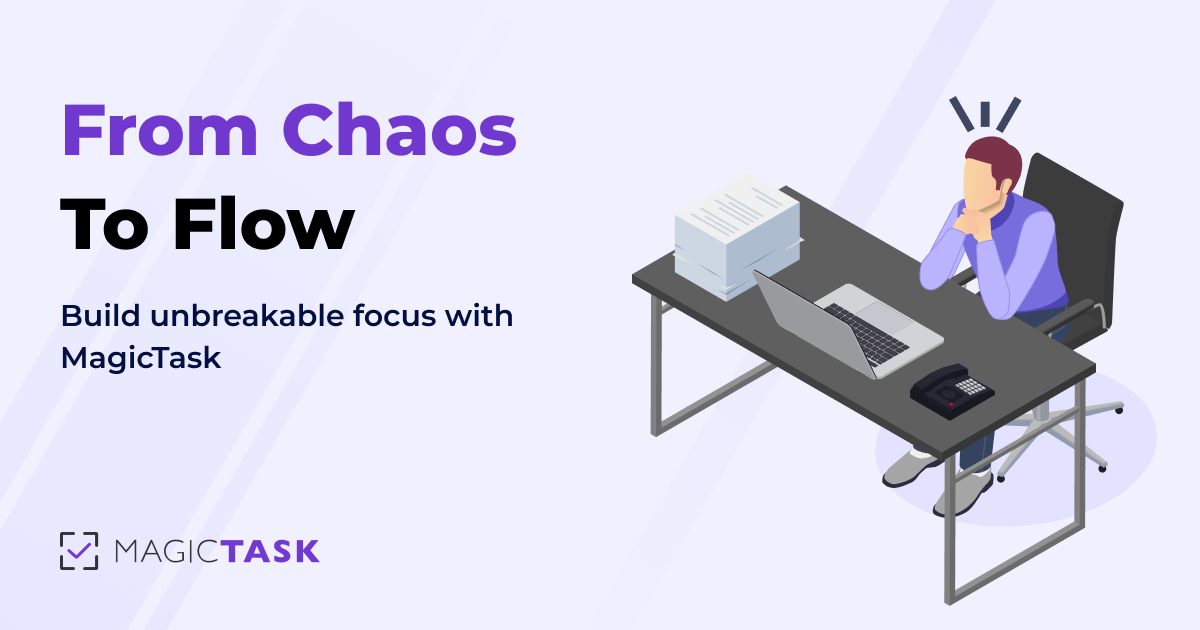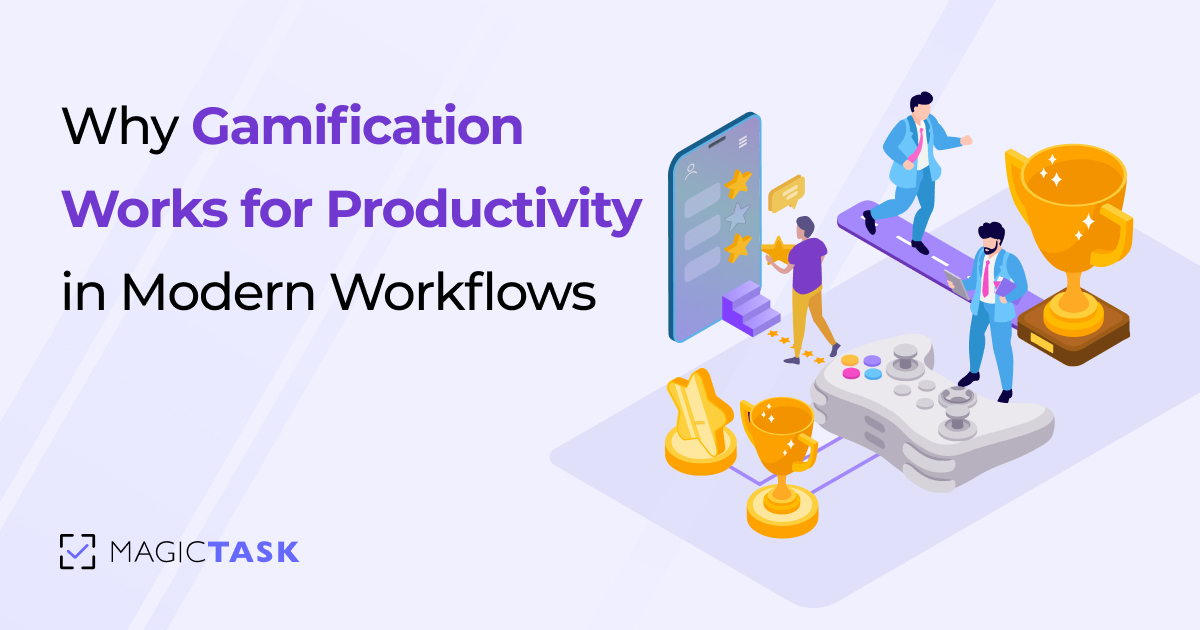7 Habits That Are Killing Your Productivity (and How to Fix Them)
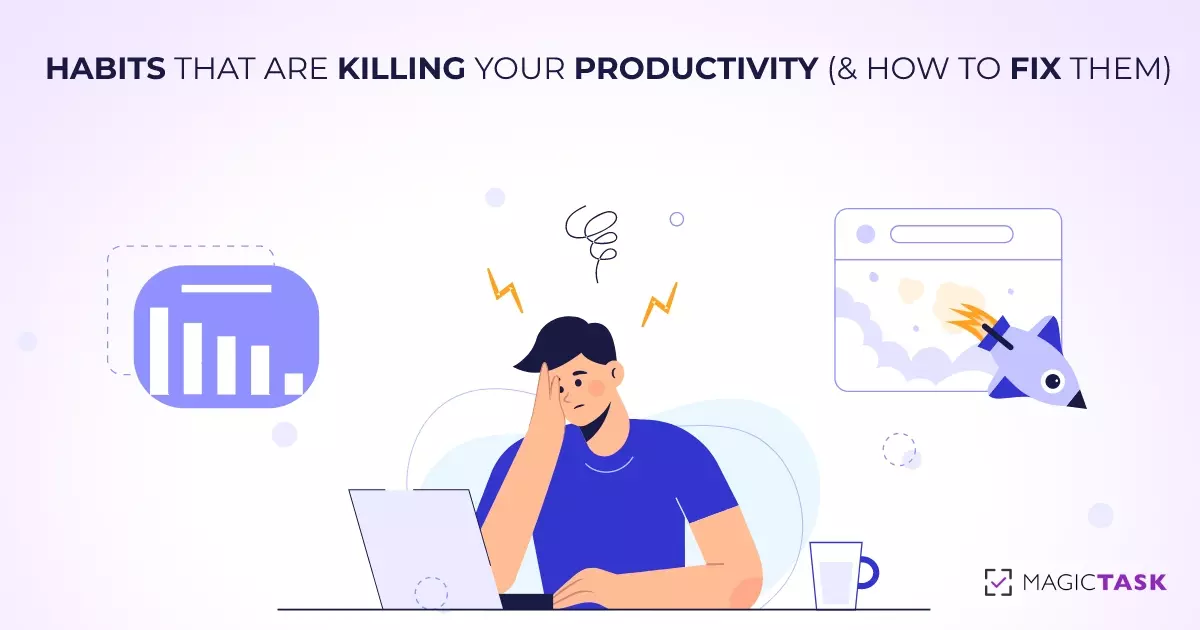
There’s nothing better than the satisfaction of a productive day. The dopamine rush is just pure bliss when you’ve finished all the tasks for the day, and all the deliverables are exactly how you imagined them to be. But many things in our day-to-day lives can prevent us from achieving the goals we set for ourselves.
Among these, the most common, and quite probably the biggest challenge is probably ourselves. Some of the habits that we’ve developed over the years can prevent us from achieving our true potential and hold us back from peak productivity.
Let’s have a look at a few of them and how we can overcome them.
1. Micromanaging
Micromanaging your team kills your productivity and your entire team’s. If you’re a micromanager, you know it's not easy to just let go and let your team do their job.
This habit often stems from perfectionism - you want things to be done in a certain way and to a certain standard. Or maybe you just don’t want to let go of your duties or don’t trust others to do your job as well as you did.
Micromanaging and not delegating your tasks can affect your team morale. It’s also likely that your team will develop a culture of relying on you to make every single decision. This will hamper your productivity even further.
How to stop micromanaging?
It’s not easy to unlearn micromanaging. One way to approach this would be to see delegating as one of your tasks. Picture training your team as one of your duties. When you delegate tasks, your team will learn more skills, and their confidence will grow. And by considering team building as one of your tasks or jobs, you’ll be able to let go.
2. Always using synchronous communication

We’ve all heard this at least once “this meeting could have been an email.” But the fact is most people are used to just creating a meeting or calling someone any time they need to discuss something. While we cannot completely avoid meetings or calls, too many of them can kill your productivity.
Meetings and phone calls demand our complete attention. And it requires everyone to be available at the same time even if they’re busy with something else.
In general, we’re at our peak productivity when we’re in “the zone” - when our mind is occupied with the task at hand, and all our attention is on it. But if we get disturbed, it will take close to 30 minutes for us to reach this state.
How to handle this?
The solution? Switch to async communication. The idea is simple: if it can be an email, make it an email. Don’t expect the other person to respond to your messages earlier. Don’t just send a “hi” and wait for the other person to reply before asking your queries. Send all the information you wish to convey and let the other person reply on their own time.
And if you have to call or need a meeting, try to schedule it in advance.
3. Not spending enough time on yourself
While it may seem counter-intuitive, spending all your time working is not the best way to be productive. You need to spend time on yourself.
Often when you’re in the zone, you may find yourself doing hours of work without thinking about anything else. You may not notice that you’re getting hungry and forget to have your lunch or dinner on time. But while it may appear as if you’re powering through a lot of work, the quality of the end product will be affected soon enough.
The same applies even if you’re not getting enough sleep or rest throughout the day. You need to take a break when you’re not in your best mental or physical state. But if you don’t take a break when you’re not feeling great, you’re looking at possible burnout, and you may not be able to work for a few days.
Another aspect of this is that many people often find it difficult to say no to more work or responsibilities. With this approach, they’re setting themselves up for too much pressure, which will slow them down.
How to solve this?
To solve this, you have to listen to your body. If you have these habits, it may not be easy to get out of this, and you’ll have to actively work towards it. If you’re feeling hungry, don’t wait, just go have some food. If you’re too tired, take a power nap. And if you’re feeling too overwhelmed with work, take a day off. Soon, you’ll be able to tell what your body and mind need and ensure you’re constantly at peak energy levels.
4. Keeping your phone too close to your workspace
This is way too familiar for most people. Few people can resist the temptation of a notification tone. For most working professionals, their phones are attached to them almost 24/7. And every time our notifications go off, rarely can we resist checking it out and taking a stroll through all of our social media apps.
But we cannot completely switch off our phones or avoid them fully either. For most people, phones are part of their work life.
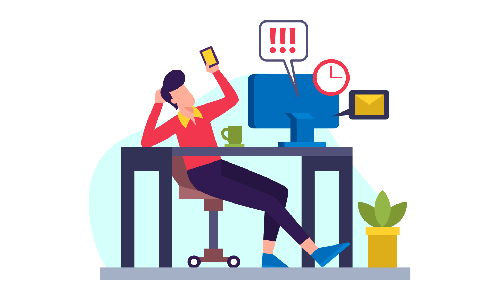
So how do we find a balance to this?
A possible solution stems from the principles of UI/UX design. When app designers don’t want us to do something — for example, cancel a subscription or close a pop-up ad — they make it difficult for us to do it. Maybe they may add a couple of additional steps to the process, or in the case of a pop-up ad, make the close button hard to hit with our fingers.
We can apply this same idea to detach ourselves from our phones. The easiest way to do this is to keep your phone a couple of feet away. Just make sure you can hear the phone’s notification sounds, but it's away enough that you'll have to walk towards it to pick it up. The additional few steps ensure we will only pick up the phone when necessary.
Android users can also use Focus Mode on their phones. In this mode, the phone will remind us how long we’ve been at work using a countdown timer. Every time we pick up the phone, it will essentially remind us to get back to work. And, of course, you won’t get any notifications. In iOS, a similar feature simply called ‘Focus’ is available.
5. Trying to multi-task
Once again, this may seem counterintuitive, but multitasking kills your productivity. In this case, multi-tasking is not handling four different tasks one after the other in four hours but rather trying to do four different tasks at the same time. For instance, trying to design a social media post while taking part in a meeting or trying to listen to a webinar while working on your budget.
It’s not impossible to multitask, but we’ll either be compromising on the quality of the work or the productivity. If we’re working on social media in the middle of a meeting, you'll zone out from the meeting. Or you'll find yourself staring at the screen without getting any work done.
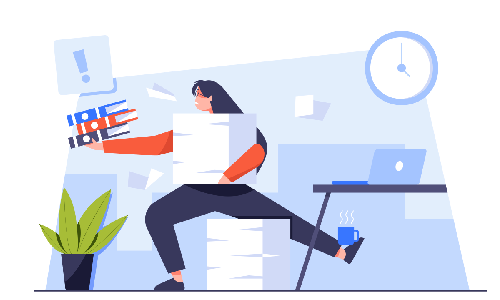
The best approach is to list tasks, prioritize them, and tackle them one after another.
You can also try the Pomodoro technique if you have too many tasks to handle. The technique is pretty straightforward - work for 25 minutes and then take a 5-minute break. Once you’ve done this four times, take a longer break for around 25 to 30 minutes.
With this technique, you’ll always be in your peak productive phase. Your mind will have enough rest, and you’ll be able to power through your tasks easily.
6. Using the wrong tools
Maybe you can cut down a tree with a pocket knife, but should you?
In many situations, people are unwilling to shift to a different tool, even when better tools are available. It may be the comfort of what they’re used to or not wanting to spend time learning a new tool when the existing one just works. In some cases, they just may not know that a better alternative is available to them.
Using the right tool can help you become more productive and get more tasks done in less time. It can also reduce your cognitive overload and make your tasks easier. With the advances in AI, many software solutions offer advanced automation. Automation can reduce the user’s workload significantly. And it does this without compromising the quality and offering consistent output.
Besides using the right tools for doing your tasks, you can also improve your productivity by using task management tools. Tools like MagicTask can help you organize and prioritize your tasks and make sure they are finished on time. You can get a bird’s eye view of your workflow and improve on any inefficiencies.
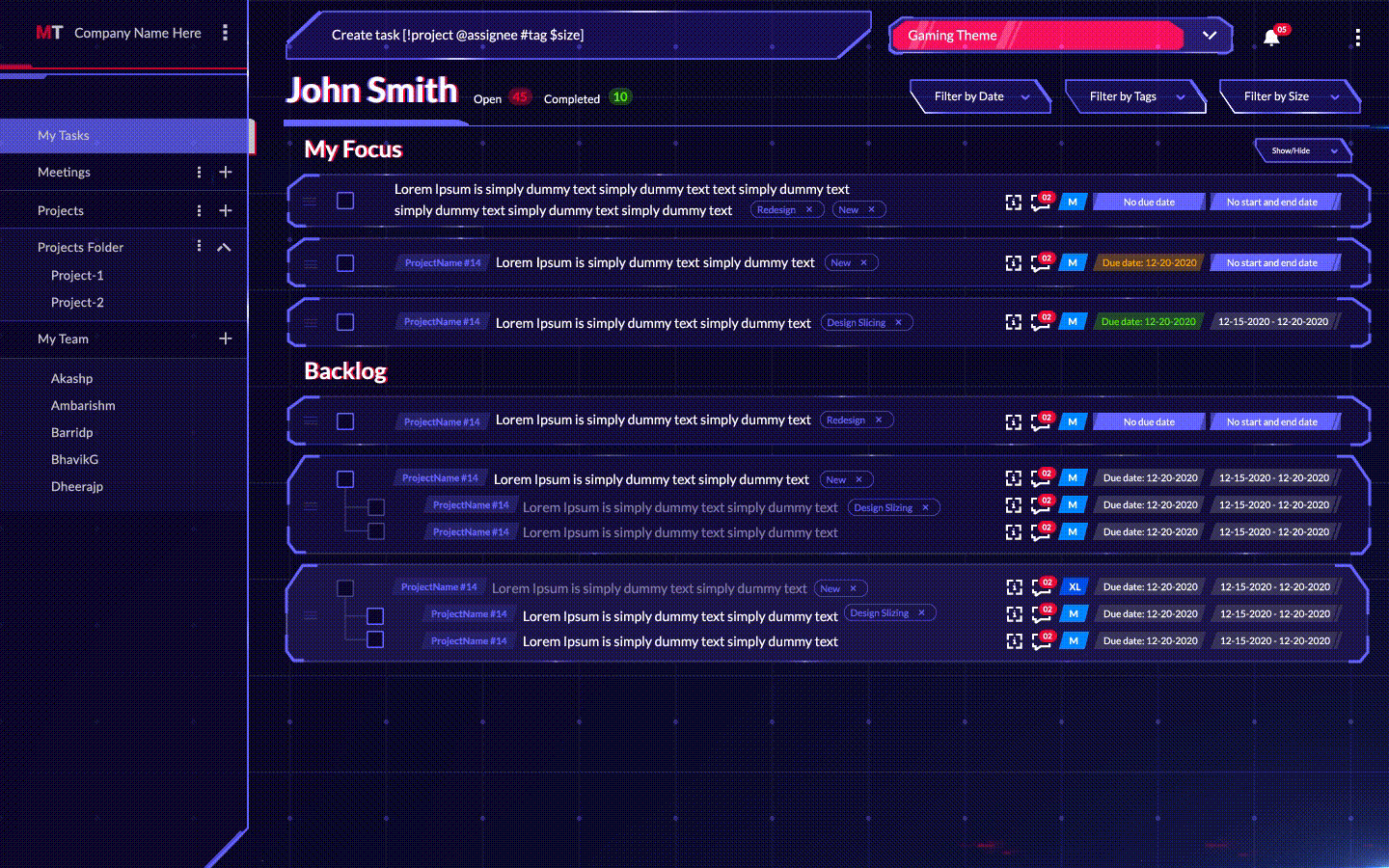
7. Spending too much time trying to optimize your productivity
There are way too many apps out there promising to keep track of your productivity and help you get more tasks done in a short time. You’ll also find YouTube tutorials, articles, research papers, and advice from life coaches on how you can be more productive. While these solutions work to a large extent, you don’t need all of them.
Too often, we get trapped in metrics and numbers while we try to become productive. And this means we may end up spending way too much time worrying about being productive and less time being productive.
To be productive, you don't have to invest in learning new techniques or setting up new apps and solutions. Just keep these ideas in your mind:
- You work best when not disturbed.
- You get more tasks done when you’re in the zone.
- It’s easy to do tasks one after another instead of all at once.
- Before sitting down to work, make sure you’re not hungry, are well rested, and feel good about the day.
- Stick to asynchronous communication as much as possible.
- You can also use a task management tool like MagicTask to keep track of everything.
If you’re spending time learning a new technique or tool, see if using it is helping you be more productive. Otherwise, just let it go.
Use a Task Management Tool, and Build Better Habits
Task management tools can help you power through your work efficiently. They help you easily get rid of habits that are holding you back.
Check out MagicTask, a gamified task management tool for web and mobile that helps users boost productivity while maintaining a work-life balance through the use of gamification and hyper-simplicity, Try it out now for free.
